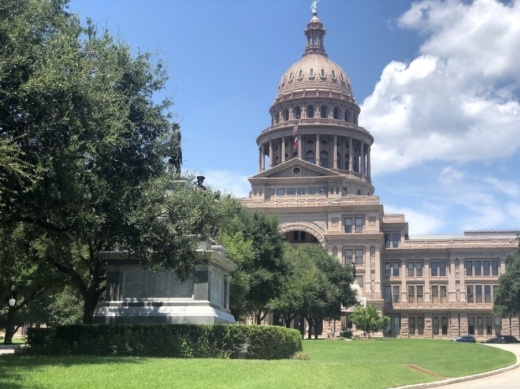The background
HB 2, a $7.7 billion school finance bill aimed at increasing funding for public education across Texas, passed the Texas House of Representatives with bipartisan support April 16, Community Impact reported.
The bill included raises for teachers and other staff members in addition to a $395 increase to the $6,160 per student annual basic allotment—an amount that advocates have said has not kept pace with inflation since it has remained unchanged since 2019, Community Impact reported.
However, the version passed by the Senate committee on May 15 only includes raises for teachers with two or more years of experience and increases the basic allotment by only $55.
The latest proposal combines several bills passed earlier this session, including a teacher pay bill and a bill aimed at helping young students succeed in reading and math, Community Impact reported.
Sen. Brandon Creighton, R-Conroe, said at the May 15 hearing that these incorporated initiatives would allow schools to use the basic allotment for “all those other needs: transportation, energy—all those other costs that are real and impactful, but they’re diverse in how the districts need to use them.”What they’re saying
Both FBISD and KISD officials released news releases May 20, citing support for the increases to funding in staff pay and basic allotment in the House’s version.
Officials in both districts have cited financial difficulties amid the unchanging basic allotment, specifically citing the rising health insurance contribution costs that have taken a hit on their general budgets and left little room for teacher raises for the 2025-26 school year.
Under the House’s version of HB 2, FBISD would be at a $8 million shortfall compared to $24.4 million under the Senate committee’s version, Chief Operating Officer Bryan Guinn said at the May 19 board meeting. Without any additional funding, the district would have a $34.6 million shortfall, Guinn said May 5.
FBISD board of trustees unanimously approved a resolution at the May 19 meetings, urging the Texas Legislature to pass the House version of the bill, emphasizing its alignment with the district’s goals of “equitable,” “high-quality” education for all students.
“There’s a reason there are two sides [of the Legislature] so when they come to the table, there’s reconciliation,” FBISD Board President Kristin Tassin said in the release. “When it comes to staff raises, a compromise on the two bills is desperately needed.”
In a district video, KISD Superintendent Ken Gregorski said that the Senate committee leaves behind 52% of KISD staff who are not classroom teachers—including bus drivers, custodians, cafeteria workers, police officers, clerical staff and instructional aides.
“The Senate [committee] version of school finance creates a short-term win for some but guarantees a long-term deficit for many more,” Gregorski said. “I cannot support a bill that excludes first and second year teachers from a race [and] leaves out all of our valued employees who do so much for our children every day.”
Gregorski noted that state leaders had said they would pass a school funding boost alongside a $1 billion education savings account plan for private school vouchers, which Community Impact reported was dubbed the “Texas two-step” during the April 16 House hearing.
“While [SB 1] addresses one piece of the education puzzle, it leaves over 5 million public school students across Texas still waiting to be funded,” Gregorski said.
Next steps
According to the Texas Legislature Online, the Senate committee’s version of the bill has yet to be approved by the Senate before moving forward in the legislative process.
If the House refuses to concur with the Senate version of the bill, a conference committee made up of members of both chambers will convene before the final bill would arrive at Gov. Greg Abbott’s desk for approval, according to Legislature documents.





